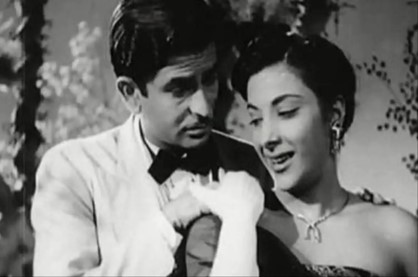Goa: The 55th International Film Festival of India (IFFI) has put a spotlight on India’s rich cinematic heritage through its “Restored Classics” section, showcasing the dedicated preservation work by the NFDC-National Film Archive of India (NFDC-NFAI) under the National Film Heritage Mission (NFHM). This initiative celebrates India’s unparalleled film legacy, giving cinephiles the opportunity to experience the magic of classic cinema that has been lovingly restored to modern standards.
The selection features some of India’s most celebrated and historically significant films, carefully restored using cutting-edge 4K scanning, colour correction, and sound enhancement techniques by over 300 professionals. These efforts have meticulously repaired missing frames, scratches, and damage to maintain the films’ original essence while meeting contemporary cinema quality.
Silent Cinema
One of the jewels of the section is Kaliya Mardan (1919), a pioneering work by Dadasaheb Phalke, considered the father of Indian cinema. This silent film, preserved using the surviving 35mm dupe negative, is accompanied by live music from Satyaki Banerjee and his team. The screening celebrates Phalke’s innovative use of special effects and storytelling techniques, showcasing his unmatched contribution to Indian film history.
Telugu Cinema
Devadasu (1953) marks a special celebration of Akkineni Nageswara Rao, the matinee idol of Telugu cinema, during his centenary year. This adaptation of the Bengali classic Devdas is restored to honour ANR’s lasting influence and the film’s impact on Indian audiences.
Hindi Cinema
The iconic Awara (1951), directed by Raj Kapoor, explores themes of wealth, power, and destiny. Restored from a 35mm dupe negative, the screening is supported by the Kapoor family’s generous contribution of film materials to NFDC-NFAI. Another highlight is Hum Dono (1961), a Dev Anand classic set against the backdrop of World War II, featuring a dual role and an unforgettable soundtrack by Jaidev, celebrating the birth centenary of legendary playback singer Mohammed Rafi.
Saat Hindustani (1969) stands out as an early portrayal of resistance against Portuguese rule in Goa, showcasing a young Amitabh Bachchan in his debut role. The film’s restoration from a 35mm camera negative reinforces its message of unity and patriotism.
Bengali Cinema
Tapan Sinha’s Harmonium (1976) is part of the centenary celebrations of the revered filmmaker. Restored from the original 35mm camera negative preserved by the West Bengal State Film Archive, this poignant tale of a harmonium’s journey underscores the director’s artistic vision and musical prowess.
Seemabaddha (1971), another classic from Satyajit Ray’s acclaimed Calcutta Trilogy, presents a critical view of corporate ambition. The restoration process unearthed a previously unreleased one-minute colour sequence featuring a Peter fan advertisement, adding depth to the film’s portrayal of corporate ruthlessness. This effort follows the successful restoration of Pratidwandi in 2022, with plans to complete the entire trilogy.
A Milestone in Preservation
The restoration work reflects an unprecedented commitment to film preservation by NFDC-NFAI, under the Union Ministry of Information and Broadcasting. This monumental initiative ensures that these cinematic masterpieces are revived and made accessible for future generations, showcasing the depth and diversity of India’s film history.
The screening of these restored classics at IFFI 2024 not only honors the vision of pioneering filmmakers and their lasting legacy but also enriches the global cinematic landscape, inspiring audiences worldwide to appreciate the cultural and artistic wealth of Indian cinema.





